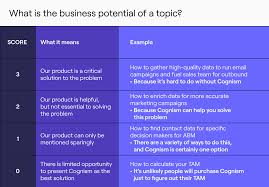SEO Keyword Strategy: A Comprehensive Guide
Search Engine Optimization (SEO) is a crucial component of any successful digital marketing strategy. One key aspect of SEO is the effective use of keywords to improve your website’s visibility in search engine results. In this article, we will explore the importance of a solid SEO keyword strategy and provide you with valuable tips to enhance your online presence.
Understanding Keywords
Keywords are the words or phrases that users type into search engines when looking for information, products, or services. By incorporating relevant keywords into your website content, you can increase the likelihood of your site appearing in search results when users search for those terms.
The Importance of Keyword Research
Keyword research is the foundation of a successful SEO keyword strategy. By conducting thorough research, you can identify the most relevant and high-performing keywords for your business niche. Tools like Google Keyword Planner, SEMrush, and Ahrefs can help you discover valuable keywords that align with your target audience’s search intent.
Implementing Keywords Effectively
Once you have identified your target keywords, it’s essential to strategically incorporate them into your website content. Place keywords in key areas such as page titles, meta descriptions, headers, and body content to signal to search engines what your page is about.
Avoid Keyword Stuffing
While it’s important to use keywords strategically, avoid keyword stuffing at all costs. Keyword stuffing refers to the practice of excessively using keywords in an unnatural way that disrupts the flow of content. Search engines penalise websites that engage in keyword stuffing, so focus on creating high-quality, user-friendly content instead.
Monitor and Adapt Your Strategy
SEO is an ongoing process that requires continuous monitoring and adjustment. Regularly track the performance of your chosen keywords using tools like Google Analytics and Search Console. Analyse which keywords are driving traffic and conversions and make adjustments to your strategy accordingly.
Final Thoughts
An effective SEO keyword strategy is essential for improving your website’s visibility and attracting organic traffic. By conducting thorough keyword research, implementing keywords strategically, and monitoring performance metrics, you can enhance your online presence and reach a wider audience.
7 Essential Tips for Crafting an Effective SEO Keyword Strategy
- Do thorough keyword research to identify relevant and high-traffic keywords.
- Focus on long-tail keywords for more specific targeting and less competition.
- Use keywords naturally in your content to avoid keyword stuffing.
- Optimize meta tags, headings, and URLs with target keywords for better SEO performance.
- Regularly monitor keyword performance and make adjustments based on analytics data.
- Consider user intent when selecting keywords to attract the right audience.
- Stay updated with search engine algorithms to adapt your keyword strategy accordingly.
Do thorough keyword research to identify relevant and high-traffic keywords.
To enhance your SEO keyword strategy, it is crucial to conduct thorough keyword research to pinpoint relevant and high-traffic keywords. By investing time in researching popular search terms within your industry or niche, you can uncover valuable keywords that align with your target audience’s search intent. Identifying these key phrases will not only boost your website’s visibility in search engine results but also attract more organic traffic to your site. Remember, the foundation of a successful SEO campaign lies in choosing the right keywords that resonate with your audience and drive meaningful engagement.
Focus on long-tail keywords for more specific targeting and less competition.
When implementing an SEO keyword strategy, it is beneficial to focus on long-tail keywords for more specific targeting and less competition. Long-tail keywords are phrases that are more detailed and specific, often reflecting the searcher’s intent more accurately. By incorporating long-tail keywords into your content, you can attract highly targeted traffic and increase the likelihood of conversion. Additionally, long-tail keywords typically have lower competition levels compared to broad keywords, making it easier for your website to rank higher in search engine results. By prioritising long-tail keywords in your SEO efforts, you can effectively reach your target audience and improve the overall performance of your website.
Use keywords naturally in your content to avoid keyword stuffing.
To enhance your SEO keyword strategy, it is crucial to use keywords naturally within your content to prevent keyword stuffing. By seamlessly incorporating relevant keywords into your website content in a way that reads organically, you can improve your search engine visibility without risking penalties. Remember that user experience is key, so focus on creating valuable and engaging content that resonates with your audience while strategically integrating keywords to signal search engines about the relevance of your page.
Optimize meta tags, headings, and URLs with target keywords for better SEO performance.
To enhance your SEO performance, it is crucial to optimise meta tags, headings, and URLs with your target keywords. By incorporating relevant keywords into these key areas of your website, you signal to search engines the content and purpose of your pages. This optimisation strategy not only improves search engine visibility but also enhances user experience by providing clear and concise information. Consistent use of target keywords in meta tags, headings, and URLs can significantly boost your website’s ranking and attract more organic traffic.
Regularly monitor keyword performance and make adjustments based on analytics data.
Regularly monitoring the performance of your chosen keywords and making adjustments based on analytics data is a crucial tip for a successful SEO keyword strategy. By analysing how your keywords are performing in terms of driving traffic and conversions, you can identify opportunities for improvement and refine your strategy accordingly. This data-driven approach allows you to stay agile and responsive to changes in search engine algorithms and user behaviour, ultimately helping you maximise the effectiveness of your SEO efforts and enhance your website’s visibility online.
Consider user intent when selecting keywords to attract the right audience.
When developing an SEO keyword strategy, it is crucial to consider user intent when selecting keywords to attract the right audience. Understanding what users are searching for and why they are searching for it allows you to choose keywords that align with their needs and interests. By focusing on user intent, you can ensure that your website appears in search results that are relevant to your target audience, increasing the chances of attracting qualified traffic and ultimately driving conversions.
Stay updated with search engine algorithms to adapt your keyword strategy accordingly.
Staying updated with search engine algorithms is essential for maintaining an effective SEO keyword strategy. Search engines like Google frequently update their algorithms to improve user experience and deliver more relevant search results. By staying informed about these changes, you can adapt your keyword strategy to align with the latest ranking factors and best practices. This proactive approach ensures that your website remains competitive in search engine results and continues to attract organic traffic effectively.




